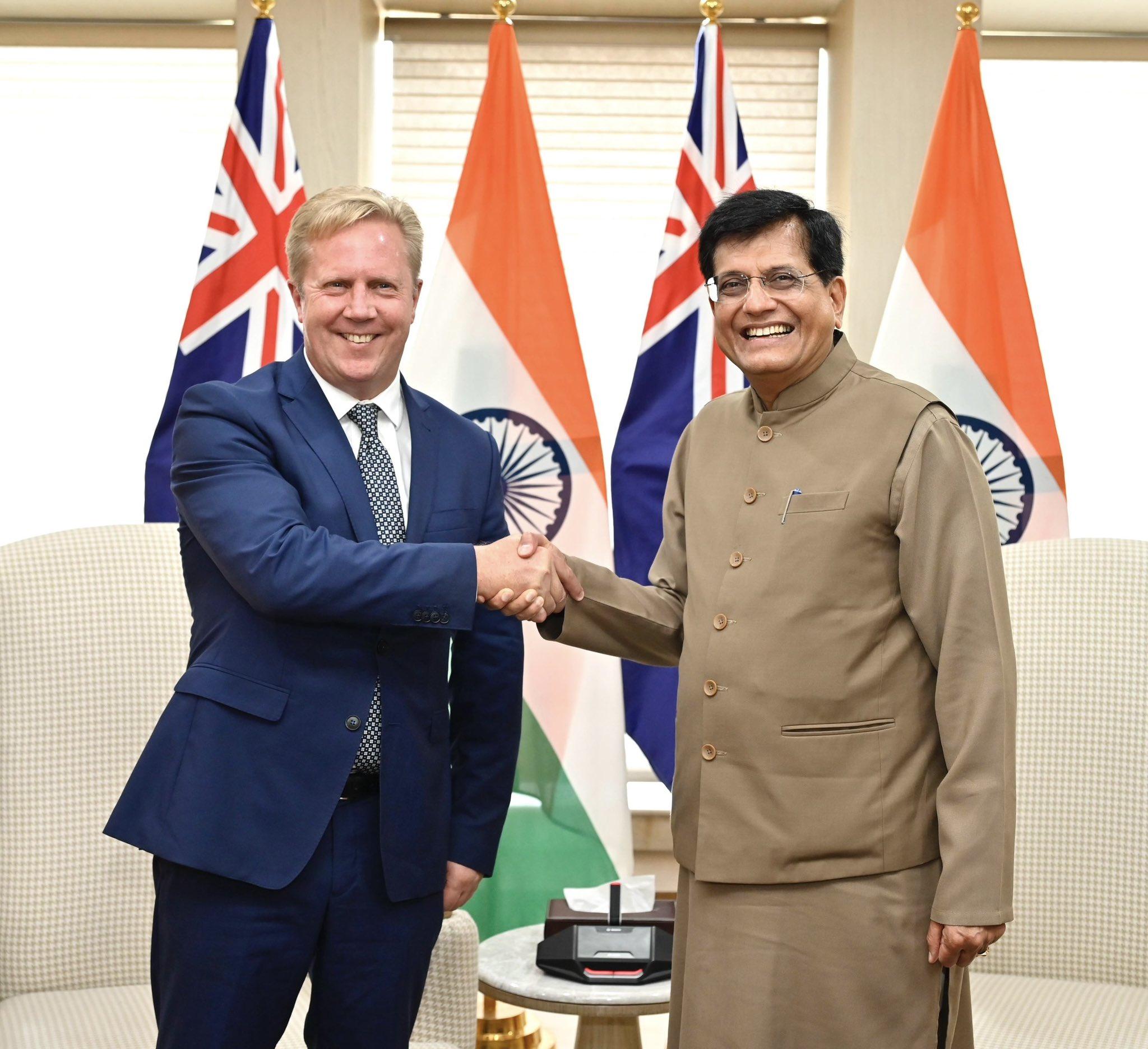In a significant development for global trade, India and New Zealand have officially initiated negotiations for a Free Trade Agreement (FTA). This move is expected to bolster economic cooperation, streamline supply chains, and improve market access between the two nations.
The announcement follows a bilateral meeting between Indian Prime Minister Narendra Modi and New Zealand Prime Minister Christopher Luxon, highlighting the commitment of both governments to deepen economic collaboration. The negotiations were formally marked by a meeting between India’s Minister for Commerce and Industry, Piyush Goyal, and New Zealand’s Minister for Trade and Investment, Todd McClay, on March 16, 2025.

Strengthening Economic Partnerships
India and New Zealand share a long-standing partnership based on shared democratic values, people-to-people ties, and economic complementarity. The FTA negotiations aim to:
Enhance trade and investment opportunities
1)Improve supply chain integration
2)Facilitate balanced economic growth
3)Strengthen bilateral trade ties
By launching these discussions, both nations are signaling their intent to create a mutually beneficial trade framework that will support long-term economic growth.
Expected Benefits of the India-New Zealand FTA
1. Improved Market Access – Businesses in both countries will have better opportunities to trade goods and services with reduced tariffs and simplified trade procedures.
2. Boost to Supply Chains – Strengthening trade relations will lead to more efficient supply chains and seamless movement of goods.
3. Investment Opportunities – The agreement could pave the way for increased foreign direct investment (FDI) between the two economies.
4. Job Creation – With expanded trade opportunities, industries in both countries are expected to grow, leading to new employment opportunities.
Future Prospects and Challenges
While the FTA presents significant advantages, there are challenges such as tariff negotiations, market access restrictions, and differences in regulatory standards that need to be addressed. However, both governments are committed to resolving these issues through diplomatic discussions and economic dialogue.
The launch of these negotiations is a positive step toward strengthening Indo-Pacific trade relations and reflects a shared vision for sustainable economic prosperity.




